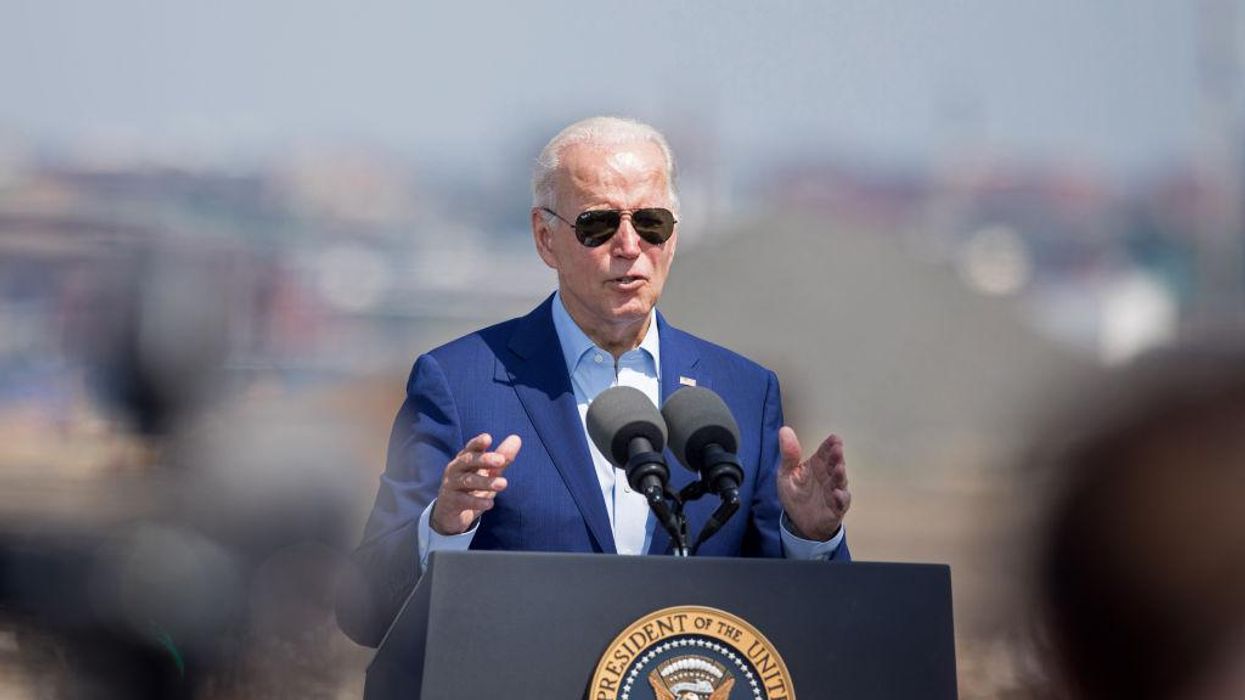
Scott Eisen/Getty Images

President Joe Biden on Wednesday announced new executive actions he will take to combat climate change, though he came short of declaring a national climate emergency as environmental activists have demanded.
Speaking in Somerset, Massachusetts, the president said he will direct the Federal Emergency Management Agency to provide $2.3 billion in funding for a program to alleviate the effects of extreme heat. The White House said this funding "will help communities increase resilience to heat waves, drought, wildfires, flood, hurricanes, and other hazards by preparing before disaster strikes."
Biden also spoke about new guidance from the Department of Health and Human Services making funding from the Low Income Home Energy Assistance Program available for poor households to purchase air conditioning units and access "community cooling centers." This is an expansion of the program's traditional role of providing assistance to families that need heating in winter, an expansion the White House said was necessary for "this new climate reality."
Additionally, the Department of the Interior will propose a plan to build wind farms in the Gulf of Mexico, of the coasts of Galveston, Texas, and Lake Charles, Louisiana. The White House claims these projects could power more than three million homes if completed. Biden will also direct the secretary of the Interior to "advance clean energy development" off the coasts of Florida, Georgia, South Carolina, and North Carolina so that "these southeast states will be able to benefit from good-paying jobs in the burgeoning offshore wind industry."
While the president called climate change an "emergency," he did not indicate he would declare a national climate emergency to seize extraordinary powers to make climate policy in absence of congressional authorization.
"This is an emergency and an emergency and I will look at it that way," Biden said. "I said last week, say it again, loud and clear. As president, I'll use my executive powers to combat climate change, the climate crisis in the absence of congressional action."
The president's actions come after Democratic lawmakers failed to come to an agreement on a spending bill that would fund Biden's climate priorities. Sen. Joe Manchin (D-W.Va.) objected to proposals to spend more than $500 billion on tax credits and subsidies for the "green energy" industry, as well as increase taxes on corporations and the wealthy.
After consumer price index data showed inflation climbed 9.1% since last year, Manchin told Senate Majority Leader Chuck Schumer (D-N.Y.) last week he would not support far-reaching government spending until inflation begins to fall.
Biden has vowed to act on climate change in absence of additional legislation from Congress, but some Democratic lawmakers have called on him to go further than simple executive actions. Sens. Jeff Merkley (D-Ore.) and Sheldon Whitehouse (D-R.I.) on Monday said that Biden should make a national emergency declaration to seize additional powers under the National Emergencies Act to fight climate change.
Were Biden to take such drastic action, at minimum, he could redirect spending at military bases to finance renewable energy projects. But environmental activists have demanded the president go even further and unilaterally ban crude oil exports, end offshore drilling, and halt hundreds of billions of dollars of U.S. investment in fossil fuel projects abroad.
The president appears for now to be unwilling to take that course of action, understanding that Republicans would surely challenge him in court.